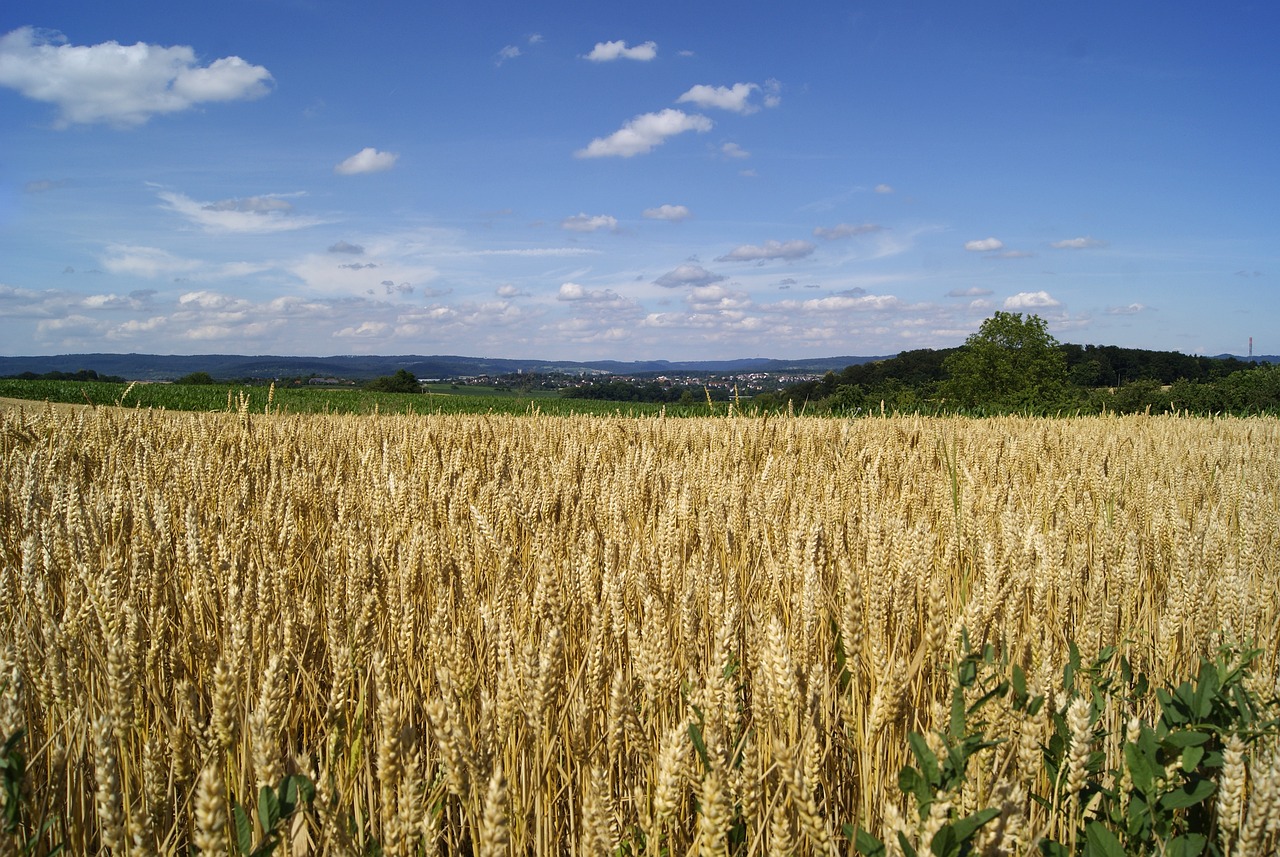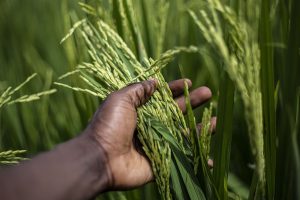How can we support local organic farmers? It’s a question that resonates deeply with anyone who values healthy living, sustainability, and community. In an age where convenience often trumps quality, purchasing from local organic farms can seem like an extra step. However, the benefits for our health, the environment, and our local economy are substantial. Let’s take a journey to understand the various ways we can actively support these essential stewards of the land.

Why Support Local Organic Farmers?
Health Benefits
When we purchase fresh organic produce, we’re not just buying goods; we’re investing in our health. Organic foods are typically richer in nutrients and free from synthetic chemicals. The absence of harmful pesticides and herbicides means cleaner, safer food on our tables.
Environmental Stewardship
Local organic farmers play a pivotal role in environmental conservation. Organic farming practices emphasize soil health, water conservation, and biodiversity, making them a crucial part of the fight against climate change. By supporting these farms, we contribute to a healthier planet.
Boosting the Local Economy
Spending our dollars within our community helps local economies thrive. It ensures that money circulates within our local area, supporting not only the farmers but also local businesses and services that depend on them.
Ways to Support Local Organic Farmers
Purchase Directly from Farmers Markets
One of the most direct ways to support local organic farmers is by buying from farmers markets. These vibrant gatherings not only offer fresh produce but also create a sense of community. We can engage directly with the farmers, learn about their practices, and even discover new, seasonal foods.
Benefits of Farmers Markets:
- Freshness Guarantee: Directly from farm to market, the produce is often harvested within 24 hours of being sold.
- Variety: Access to a wide range of unique and seasonal products.
- Transparency: We can ask questions and understand exactly how our food is grown.
Join a Community Supported Agriculture (CSA) Program
Community Supported Agriculture allows us to buy a share of a farm’s harvest in advance. Each week, we receive a box of fresh produce, which can include vegetables, fruits, herbs, and sometimes even eggs or dairy. CSA programs ensure farmers have a stable income and provide us with high-quality, often organic foods.
Advantages of CSA Programs:
- Seasonal Eating: Encourages us to eat what’s in season, which is often more nutritious and flavorful.
- Reduced Food Waste: Since farmers grow what they know they can sell, overall waste is minimized.
- Discovery: We can discover new foods we might not have tried otherwise.
Support Local Organic Food Stores
Local organic food stores are another excellent option. These stores prioritize sourcing from nearby farmers, ensuring a steady market for local produce. By frequenting these stores, we help sustain a market for local organic goods.
Benefits of Organic Food Stores:
- Convenience: Often more accessible than farmers markets with broader hours.
- Extended Offerings: Aside from fresh produce, these stores offer organic dairy, meats, and pantry items.
- Community Focused: They often organize events and workshops to educate consumers about organic farming and sustainability.
Eat at Restaurants That Source Locally
Many restaurants now pride themselves on sourcing ingredients from local organic farmers. By choosing to dine at these establishments, we indirectly support those farms. These restaurants often highlight their suppliers on menus or websites, making it easier for us to make informed choices.
Advantages:
- Quality: Dishes made with local, organic ingredients are often fresher and more flavorful.
- Awareness: Promotes awareness and encourages more restaurants to adopt similar practices.
- Social Proof: Dining at these restaurants signals to others that we value and support local food systems.
Grow Your Own Organic Garden
If we have the space and time, starting an organic garden can be incredibly rewarding. It not only provides us with fresh produce but also gives us firsthand appreciation of the challenges and rewards of farming. We can also swap excess produce with neighbors or donate it to local food banks.
Benefits of Home Gardening:
- Personal Satisfaction: Growing our own food is a fulfilling endeavor.
- Local Resilience: Reduces dependency on far-away food sources.
- Educational: Helps us understand what goes into producing organic food, fostering a deeper connection with farmers.
Understanding Labels and Certifications
Part of supporting local organic farmers is understanding labels and certifications. Not all organic products are certified, but that doesn’t necessarily mean they aren’t organic. Certification can be costly and prohibitive for smaller farms, so it’s essential to have a grasp on what different labels mean.
Organic Certification
Certified organic products undergo rigorous testing and adhere to strict guidelines set by national organic programs (NOP). These guidelines cover everything from soil quality to pest control and prohibit synthetic fertilizers and pesticides.
Key Points:
- USDA Organic: The most recognized certification in the United States.
- Non-GMO: Ensures that the products do not contain genetically modified organisms.
- Fair Trade Certified: Although not solely about organic farming, this certification ensures farmers receive fair compensation for their labor.
Non-Certified Organic Practices
Many small-scale farmers practice organic farming but cannot afford the certification. Engaging with farmers at markets or through their CSA programs can provide insight into their practices.
Considerations:
- Direct Conversations: Ask about their farming practices, pest control methods, and soil health.
- Local Trust: Often, these farmers rely on community trust and reputation rather than formal certification.
Advocating for Supportive Policies
Beyond our purchasing choices, we can advocate for policies that support local organic farmers. This advocacy can happen at various levels, from local government to national policy.
Local Initiatives
Supporting zoning laws that favor small farms and farmers markets can make a significant difference. Participating in town hall meetings or community boards gives us a voice in these decisions.
Actions:
- Vote: Support candidates who prioritize sustainable agriculture.
- Petitions: Engage in or start petitions that promote local farming initiatives.
- Community Engagement: Attend local meetings and forums focused on agriculture and zoning.
National Policies
On a larger scale, advocating for national policies that offer subsidies or tax incentives for organic farms can expand the practice and make organic food more accessible.
Strategies:
- Contact Representatives: Write or call your local and national representatives to voice your support.
- Join Advocacy Groups: Organizations like the Organic Trade Association (OTA) work on behalf of organic farmers and can amplify our individual efforts.
- Educate Others: Use social media and community platforms to raise awareness about the importance of supportive policies for organic farming.

Building Community Networks
Community plays a crucial role in supporting local organic farmers. Building networks with like-minded individuals can create a powerful support system for these essential contributors to our food system.
Form or Join Co-ops
Food cooperatives (co-ops) are member-owned businesses that often prioritize sourcing from local organic farmers. By joining or forming a co-op, we can ensure a steady market for these farmers and enjoy member benefits like discounted prices and a say in the store’s operations.
Benefits:
- Ownership: We have a direct stake in the co-op’s success and direction.
- Community Focus: Co-ops often host classes, events, and volunteer opportunities.
- Economic Impact: Keeps money within the local community, strengthening it economically.
Participate in Local Food Events
Food festivals, farm-to-table dinners, and harvest celebrations are excellent ways to connect with local organic farmers and the community. These events often showcase the best of local produce, offer educational workshops, and are great networking opportunities.
Advantages:
- Learning Opportunities: Gain insights into farming practices and the benefits of organic food.
- Networking: Meet and connect with other supportive community members and farmers.
- Celebration: Celebrate the hard work of farmers and the bounty they provide.
Educating Ourselves and Others
Education is a critical component of supporting local organic farmers. The more we understand and value their work, the more effectively we can support them. Additionally, educating our friends and family can amplify our impact.
Learn About Organic Farming Practices
Taking the time to understand the principles and practices of organic farming can deepen our appreciation and support. Books, documentaries, and online courses are excellent resources for learning about organic agriculture.
Resources:
- Books: Titles like The Omnivore’s Dilemma by Michael Pollan or The Soil Will Save Us by Kristin Ohlson.
- Documentaries: Films like Fresh and The Biggest Little Farm offer a visual insight into organic farming.
- Online Courses: Websites like Coursera and Udemy offer courses on sustainable agriculture and organic farming.
Share Knowledge
When we share what we’ve learned about the benefits and importance of supporting local organic farmers, we can inspire others to join the cause. Social media, blogs, and community workshops are effective platforms for spreading information.
Methods:
- Social Media: Use posts, stories, and campaigns to highlight local farms and their benefits.
- Workshops and Talks: Host or participate in community events focused on sustainable agriculture.
- Word of Mouth: Simple conversations with friends and family can be surprisingly effective.

Collaborative Efforts
Combining our efforts with those of other organizations and groups can magnify our impact. Many organizations share the goal of supporting sustainable and organic agriculture, and partnerships can lead to significant advancements.
Partner with Nonprofits
There are numerous nonprofits dedicated to supporting organic farming and sustainable agriculture. Partnering with these organizations can provide resources, funding, and advocacy support.
Examples:
- Organic Farming Research Foundation (OFRF): Supports organic farming research and advocacy.
- Rodale Institute: Conducts research on organic farming methods and educates farmers and the public.
Corporate Responsibility
Encouraging local businesses and corporations to source from local organic farmers can have a profound effect. Corporate partnerships can provide farmers with large, consistent orders and heighten public awareness.
Strategies:
- Approach Businesses: Educate local businesses about the benefits of sourcing locally.
- Community Campaigns: Organize campaigns to encourage businesses to invest in local agriculture.
- Recognition Programs: Develop programs to recognize and reward businesses that support local organic farms.
Financial Support and Investment
Fundraising and Grants
Helping farmers secure the necessary funds for their operations can be a direct and impactful way to support them. Organizing community fundraisers or assisting them in applying for grants can provide much-needed financial assistance.
Ideas:
- Crowdfunding: Use platforms like Kickstarter or GoFundMe to raise money for specific farm projects.
- Grant Writing: Assist farmers in identifying and applying for local, state, or federal grants.
Investment in Local Farms
Investing in local farms can take various forms, from purchasing shares in a farm to offering low-interest loans. These investments help farmers expand their operations, invest in new technology, and increase their overall sustainability.
Forms of Investment:
- Direct Investment: Buy shares or invest directly in farm operations.
- Community Bonds: Some communities offer bonds that fund local organic farms, with returns for investors.
- Equity Crowdfunding: Platforms like StartSomeGood allow investors to pool resources and support specific farm projects.

Conclusion
The importance of supporting local organic farmers cannot be overstated. From our health to the environment and the strength of our local economies, the benefits are vast and interwoven. By purchasing directly from farmers, advocating for supportive policies, participating in community networks, and educating ourselves and others, we can ensure that local organic farming thrives. Let’s make conscientious choices that not only benefit us but also nurture the very systems that sustain us. Together, we can create a future where local organic farming is not just viable but vibrant and celebrated.



